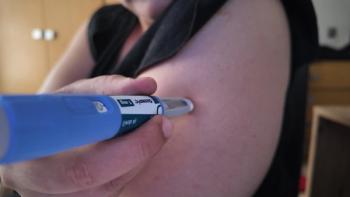
Adolescent and Young Adult Cancer Survivors Have Unique Needs
Adolescent and young adult survivors of cancer require special care, according to a study presented at the American Society of Clinical Oncology’s 2018 Annual Meeting.
Survivorship care is an integral part of the cancer journey for all patients. But according to results of a recent study presented at the American Society of Clinical Oncology’s Annual Meeting, healthcare providers need to be aware that the adolescent and young adult (AYA) survivor population requires special care.
In an interview with Oncology Nursing News®, lead author Linda Jacobs, PhD, director of the Cancer Survivorship Program at the Abramson Cancer Center of the University of Pennsylvania, explained, “This population has had a rough go.”
“Some were diagnosed with cancer maybe 20 years ago, and the treatment was different back then. Consequently, in many cases, their symptoms are worse now than someone who has that disease and was diagnosed with it recently because treatments are different.”
Along with a team of fellow researchers from the Abramson Cancer Center, Jacobs collaborated with the Children’s Hospital of Philadelphia (CHOP) and analyzed more than 10 years of data collected from 170 survivors: 123 pediatric and 47 AYA.
On each follow-up visit to the adult survivorship clinic, the researchers had participants complete a survey that contained questions on a range of issues they may have experienced, including pain, fatigue, as well as issues with sexual function, body image, and finances. Researchers then looked at the anxiety and depression associated with those issues, and talked with patients about what they thought might be causing those problems.
Researchers found that the anxiety and depression this population experienced was a result of the symptoms of treatment; for example, concentration and memory problems or fatigue were a result of chemotherapy or radiation.
“It’s not that they just have anxiety or depression as a result of having had cancer; it’s very closely related to the symptoms that they have,” said Jacobs. “If you’re in pain, of course you’re going to be anxious. Or if you are having trouble with work and can’t hold down a job, you might be depressed.”
Jacobs went on to explain that the focus then should not be on the anxiety and depression, but on how to manage the symptoms that cause them.
This is especially key for adult survivors of childhood cancer, as the researchers found that these patients were more likely to accept intervention for symptoms related to anxiety and depression—such as pain, sleep issues, job, and financial issues—than they were for anxiety or depression alone.
This is where the healthcare team should step in, noted Jacobs. Oncologists and other healthcare providers such as nurses should be aware these issues exist, particularly in this population. When these patients only see a general practitioner, it is important to keep in mind the patient’s unique medical history.
Jacobs recalled one individual in particular. “We just had a young man come in nearly 30 years later with a very serious cancer as a result of the radiation he received, and he wasn’t seeing an oncologist; he was seeing a primary care doctor who wasn’t necessarily familiar with what the late effects could possibly be.”
The biggest concern, Jacobs said, was having educated providers who are familiar with—and capable of—taking care of this unique patient population. But the landscape is changing for the better.
“Providers are becoming more well-versed in these issues as more studies come out and this becomes more mainstream,” she added. “In the past, people didn’t necessarily talk about issues like these. But now, patient advocacy groups and providers who give follow-up care are very upfront about what patients want and need.”
Newsletter
Knowledge is power. Don’t miss the most recent breakthroughs in cancer care.


































